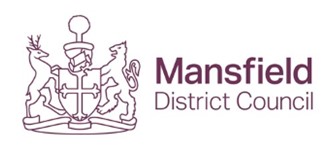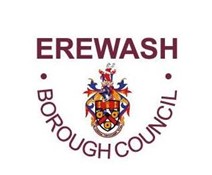The Chancellor of the Exchequer Rishi Sunak confirmed in his Budget last week that two out of eight English freeports would be located in the Midlands.
Announcing, the Freeports of Humber Ports and East Midlands Airport, Mr Sunak said the freeport policy is “on a scale we’ve never done before” and will be key in creating job as well as making it easier and cheaper to do business.
With freeports now announced, partners are focusing on how investment and new supply chain opportunities can be maximised across the whole of the Midlands region to make the most of the new benefits offered by these international trading hubs.
The Midlands exports more than any other region in England after the North East. Access to international gateways is therefore critical to the Midlands economy and will provide greater opportunities to strengthen key economic routes, including the A46/A1 and the A50/A500 corridors.
Alongside access to Humberside and East Midlands Airports, , the A1, the East Coast Main Line and food clusters in the south, Greater Lincolnshire’s ports and logistics sector accounts for over 25% of UK rail freight, connecting to the major energy and manufacturing providers in the North and the Midlands. As one of the largest and busiest ports complexes in the UK, the Humber Estuary currently accounts for 23% of all goods travelling through English ports, adding £7.6 billion GDA to the UK, and supports around 35,000 regional jobs.
East Midlands Freeport including Ratcliffe-on-Soar power station and the East Midlands Intermodal Park (EMIP) will be based around the East Midlands Airport and Gateway Industrial Cluster (EMAGIC). East Midlands Airport is the UK’s largest pure cargo airport carrying over 370,000 tonnes of cargo a year with a value of around £40bn.
The announcement also recognises the important role of Local Enterprises Partnerships to convene and develop forward thinking projects, and the power of local collaboration from both the public and private sectors and politicians to drive forward the Midlands role as heartbeat of Britain’s economy and a significant gateway for international trade.
Both freeports offer benefits to businesses located within them as they are areas where taxes and tariffs do not apply. Businesses can import goods or raw materials, make finished products, store them and re-export them without paying any tax charges, which they would pay if located elsewhere. The taxes are only paid if the goods leave the freeport and are moved elsewhere in the UK.
In England, companies inside the sites will also be offered temporary tax breaks, mostly lasting five years. These include reductions to the tax companies pay on their existing property, and when they buy new buildings. Employers will also pay reduced national insurance for new staff.
Felixstowe and Harwich, Liverpool, Plymouth, Solent, Thames and Teesside join the list in the first wave of Freeports announced by government.
Creating jobs and driving low carbon growth and investment
Elizabeth Fagan CBE, Chair of the Derby, Derbyshire, Nottingham and Nottinghamshire Local Enterprise Partnership (D2N2LEP), said:
“The East Midlands Freeport will create thousands of jobs, accelerate the region’s commitment to decarbonisation, and drive low carbon energy investments. As the heart of the UK, we are uniquely placed to capitalise and innovate on our industrial strengths in advanced manufacturing, automotive and logistics and strengthen connectivity across the wider region to stimulate investment. Our bid was built on strong collaboration across business, local authorities and other sectors; and will deliver a powerful and unique proposition that will transform the region’s social and economic future.”
Pat Doody, Chair of Greater Lincolnshire Local Enterprise Partnership (GGLEP), said:
‘Building on the area’s global strengths of advanced manufacturing and clean growth, Freeport status will ensure that our Zero Carbon Humber initiatives and Humber Estuary Plan which focus on propositions in offshore wind, green hydrogen, decarbonisation and rail supply chain are realised. This means our businesses in the Humber and Greater Lincolnshire will be able to take advantage of new supply chain opportunities in offshore wind and advanced manufacturing, and local people will be able to access more high skilled jobs and skills provision’.
Kevin Harris, Chair of the Leicester, and Leicestershire Enterprise Partnership (LLEP) Ltd. Board of Directors, said:
“Our central location brings all the associated benefits of a freeport right to the heart of England. The East Midlands Freeport connects the UK’s leading freight airport, via a dedicated rail freight connection, to all the country’s main deep-sea ports, as well as being located at the centre of a national motorway network.
“This connectivity to both domestic and international markets mean we offer a fantastic location for UK manufacturing and logistics to access global markets. When the Freeport begins to attract new innovative companies to the region, they will bring opportunities for local people across a range of skills and jobs.”
Tim Pile, Chair of Greater Birmingham, and Solihull Local Enterprise Partnership (GBSLEP), said:
‘’Businesses across the Midlands rely on the free flow of goods to enable supply chains to operate efficiently. The Midlands Freeports will allow SMEs in the region to benefit from the creation of a logistics corridor to distribute goods ‘at speed’ without long delays at the Port of Dover and Eurotunnel. This is also an opportunity for the Midlands to be part of the government’s levelling up agenda. The Freeports will be a catalyst for regeneration in areas affected by the economic downturn. They will provide an opportunity to benefit from faster access to suppliers and markets. We also welcome the prospect of developing green mobility freight solutions. This is a great example of how LEPs work in partnership with our public, private and academic sectors to identify opportunities for inclusive economic growth.”
Maria Machancoses, Director of Midlands Connect said:
“It’s fantastic news that East Midlands Airport has been confirmed as the location of one of eight UK Freeports, as well as the Humber Freeport, which contains Immingham Port in Lincolnshire. We will now work in earnest with local authorities to make sure these sites are well-connected, and that businesses have the road and rail infrastructure needed to trade with local, national and international partners.”
Sir John Peace, Chairman of the Midlands Engine said:
“I am delighted that the Chancellor’s Budget Statement recognises the huge potential for economic growth represented by Humber Ports and East Midlands Airport by announcing that they will become the locations for two of the eight new Freeports in the UK.
“Taken together, both Freeports within the Midlands Engine will be transformational catalysts for widespread changes and a key component of levelling up the Midlands. They will play a crucial role in driving up economic potential, rapidly accelerating existing initiatives, tackling skills and productivity gaps, increasing investment and delivering long term growth in our region.
“Most significantly, the Freeports of Humber Ports and East Midlands Airports will further enhance the central role of the Midlands Engine as a global gateway for the UK – building on our position as a proven powerhouse of international trade.
“The focus on green growth measures is also welcome, as the Midlands continues to play a central role in driving the new Green Industrial Revolution, and I am delighted too, with the Towns Fund announcements. Success here reflects the considerable work led by partners and recognises the importance of our regions’ towns, their hinterlands, and the critical role they play in levelling up every part of the Midlands Engine.”
Keep up to date with all the latest news from D2N2 by signing up to our Newsletter.





























